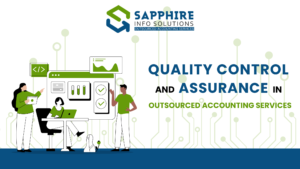Ever since the Institute of Chartered Accountants in England and Wales (ICAEW) and the Institute of Chartered Accountants of India (ICAI) sanctioned a memorandum of understanding (MoU), thousands of accountancy firms in the UK have started getting involved in outsource accounting India. The MoU allows Indian-born chartered accountants with two or more years of work experience to start practicing in the UK after passing just one exam (instead of three). This MoU was passed in 2008, and it fostered working relations between the ICAEW and ICAI. More significantly, it made accountancy firms in the UK realize that Indian accountants are just as efficient, if not more, than the UK’s accountants.
Now advanced technologies like cloud accounting have made outsourcing to India very easy and cost-effective. Firstly, Indian accountants, irrespective of how highly qualified they are, will never command as high salaries as accountants from the UK. Plus, technology helps keep costs down as manual and tedious tasks such as data entry have become obsolete.
There is a huge scope for accountancy firms in the UK to cut costs and exploit the rich talent pool of Indian accountants. As these firms decide between hiring in-house staff members or outsourcing core accounting responsibilities to India – here’s a breakdown of the underrated role of technology in relationships between Indian and British accountancy experts –
Efficient Application of Automation
Efficient automation is key to cutting costs while outsourcing. However, automation can only unlock the next era of savings in outsourcing deals if the offshore experts apply it correctly.
Offshore accountants who offer automation tools promise to offer tremendous value. But, in many instances, they apply automation in the wrong way. Be it not simplifying certain responsibilities or not using the latest and the most efficient cloud accounting tools – not all offshore firms in India are tailormade for automation. To avoid errors, accountancy firms in the UK must find providers of outsource accounting India that use the latest cloud accounting tools like Xero or QuickBooks Online. These tools enable these offshore providers to offer highly-efficient virtual accounting services.
These two cloud accounting tools meet all the requirements of accountancy firms in the UK because –
- Both partners (firm in the UK and the offshore accountants) enjoy clear demonstrations of their accounting tasks.
- With full visibility and real-time access to data, it’s easier to maximize tax deductions.
- Tools like time tracking ensure that the offshore accountants complete each project on time.
- Both partners can monitor collections in real-time.
- It’s easier to control cash burn.
Over time, the real-time availability of data helps Indian accountants get engaged in critical decisions about investments and business strategies. Overall, accountancy firms in the UK get maximum profits from their outsourcing activities.
Time Limitations
In the pandemic, real-time accounting data is akin to gold for accountancy firms in the UK. In the past, standard bookkeepers were enough to meet organizational needs.
Now, factors like social isolation and stricter deadlines are exposing the inefficiencies of legacy desktop accounting solutions. Offshore bookkeepers with no access to the latest accounting software tools are struggling as well.
The risk of waiting more than a week to access actionable accounting data is too big to take for accountancy firms in the UK. That’s why they must choose Indian accountants who are ‘digitized’ and have access to software tools like Xero or QuickBooks Online.















